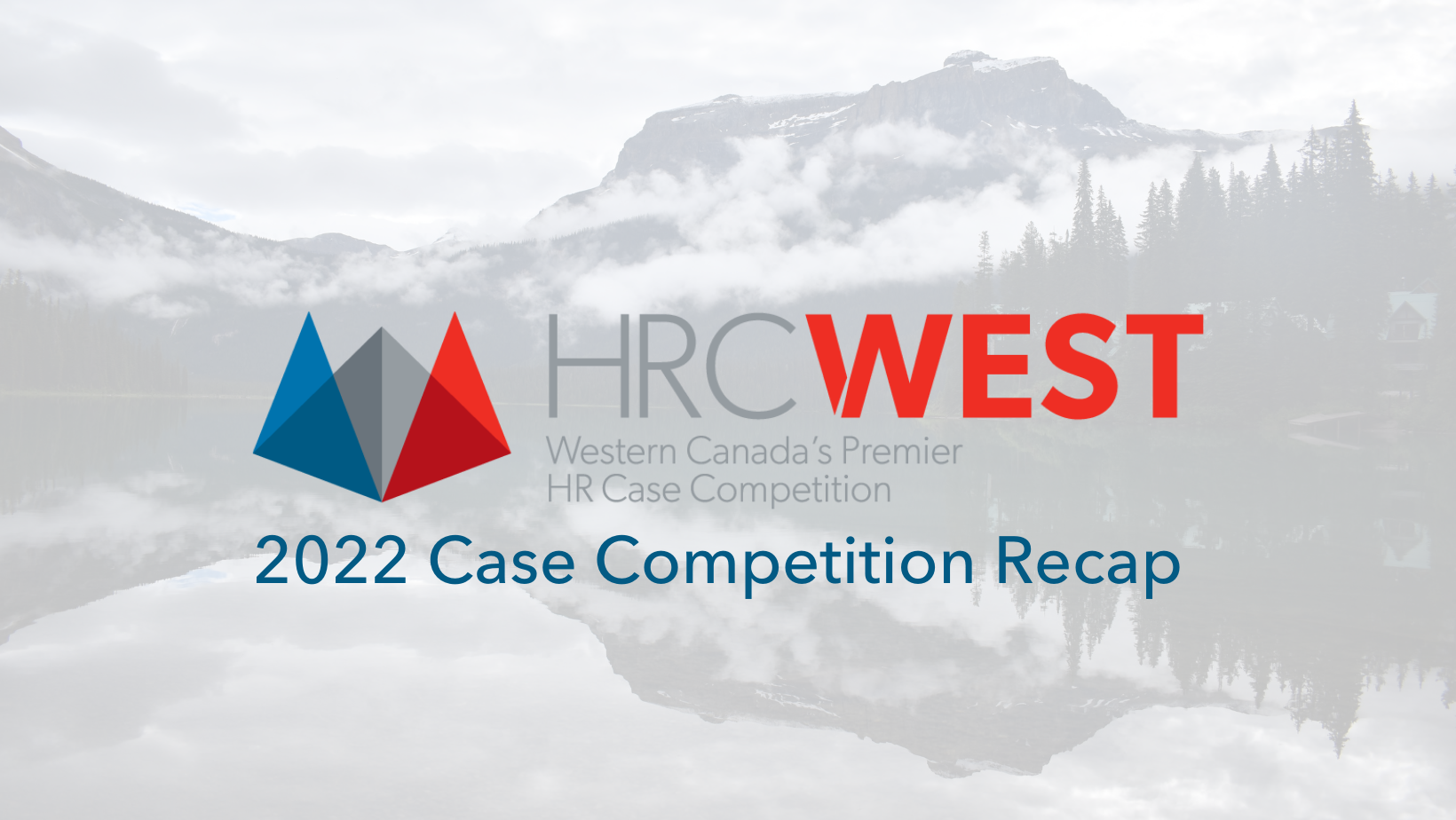
Western Canada HR Students Compete at HRC West 2022

This blog was originally a press release from CPHR BC & Yukon published on March 18, 2022 - view it here
On March 4 and 5, 2022, CPHR BC & Yukon in partnership with CPHR Alberta, brought together teams of students from post-secondary business programs across Western Canada. These students participated in a classroom learning competition dedicated to HR that merged theory with real-life simulations. The HRC West two-day event provided post-secondary student teams with the opportunity to access a unique platform for the exchange of ideas with HR students from across Western Canada and test what they have learned in the classroom with a comprehensive business case that explores a pressing HR challenge.
HRC West was first hosted in 2017 and alternates between the two provinces. With uncertainty surrounding the pandemic, this was the first year that this competition was held virtually. Forty students plus their coaches, hosts, judges and staff from both associations gathered via Zoom.
Schools competing from BC included Simon Fraser University – Beedie School of Business, The University of British Columbia - Sauder School of Business, Thompson Rivers University School – Bob Gagliardi School of Business and Economics, Acsenda School of Management and Okanagan College.
Competitors from Alberta included Mount Royal University - Bissett School of Business, University of Lethbridge - Dhillon School of Business, Bow Valley College – Chiu School of Business, Northern Alberta Institute of Technology (NAIT) - JR Shaw School of Business and University of Alberta - School of Business.
Friday night opened with an impressive keynote speaker, Dr. Wanda Costen, Dean of Business from Smith School of Business at Queen’s University. Students were then mixed up, not knowing who was from where, for some networking activities and to draw the pool of teams.
Early Saturday, three pools of three to four teams competed in their first round of presentations. The presentations were on a case study developed by Danielle Mitchell, of Danielle Mitchell Consulting on Designing a Human Resources Pay Equity Strategy. After three hours of preparation on a business case they were just setting eyes upon, they were ready to share their findings.
By Saturday afternoon, three teams remained to present their ideas and strategies in the final round.
It was a tough competition, but the winning teams were determined
3rd Place – Dragonfly Consulting - Thompson Rivers University – Bob Gagliardi School of Business & Economics coached by Scott Rankin with students Patricia Maria de Siqueira, Jilu George, Payal Redhu and Deepank Nayar.
2nd Place – Advice Alliance - Bow Valley College - Chiu School of Business, coached by Landis Jackson with students Jenessa Yackel, Crystal Gillingham, Ryan Bishop and Cody Hicks.
1st place - Northern Alberta Institute of Technology (NAIT) - JR Shaw School of Business, coached by Brenda Stokes, and comprised of Yvette Pedneault, Ronald Stephen, Paula Hopkins-Mullen and Theresa Hovdestad.
About CPHR Alberta
CPHR Alberta is the professional association dedicated to strengthening the human resources profession and upholding the highest standards of practice.
With 6,000 members in major cities across Alberta, the Northwest Territories and Nunavut, CPHR Alberta is the fourth largest HR Association in Canada.
CPHR Alberta is the exclusive registration body in Alberta for the Chartered Professionals in Human Resources (CPHR) designation, which is the professional standard in Canada. The CPHR demonstrates HR expertise, experience and ethical management of today’s human capital. CPHR Alberta is a provincial member of CPHR Canada.
About CPHR BC & Yukon
CPHR BC & Yukon is a non-profit organization specializing in advancing professional people practices. Committed to providing leadership in HR excellence, CPHR BC & Yukon is the foremost professional association for HR practitioners throughout the province.
Founded in 1942, CPHR BC & Yukon is a democratic organization governed by a volunteer Board of Directors elected by the membership. As the largest HR association in Western Canada, CPHR BC & Yukon has grown to include close to 7,000 members encompassing CEOs, directors of HR, consultants, educators, students, HR generalists, and small-business owners.
The association is the sole BC grantor of the Chartered Professional in Human Resources (CPHR) designation and is responsible for upholding industry standards. In addition, as the largest HR association in Western Canada, CPHR BC & Yukon offers professional learning and networking opportunities including workshops, symposia, events, and an annual conference and showcase
For more information contact: Carolyne Taylor, Member Relations Manager, CPHR BC & Yukon ctaylor@cphrbc.ca
The views and opinions expressed in this blog post belong solely to the original author(s) and do not necessarily represent the views and opinions of CPHR Alberta.





